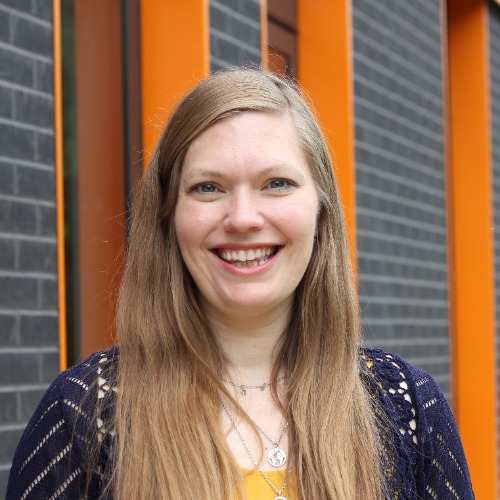
Dr Brianne Wenning
On this page
About
Dr Brianne Wenning is medical anthropologist from Indiana, USA. She was awarded her PhD in Social Anthropology from the University of Edinburgh in Scotland in 2019 where her research focused on well-being and happiness among refugees and asylum seekers in three countries: Cameroon, the UK and the Gambia. Prior to this, she received her MSc in Medical Anthropology from Durham University in 2011 and a BA in Liberal Arts from DePauw University in Indiana, USA, in 2010 where she majored in Anthropology with a double minor in Psychology and French.
Research
Dr. Wenning has a broad interest in forced migration, well-being, happiness and global health. Her previous research includes working with refugees and asylum seekers and the organisations that support them in three different countries: Cameroon, the UK and the Gambia. For her doctoral research, she conducted an ethnographic study in each of these settings while exploring the nexus of narratives, well-being, mental health and happiness. Her MSc research focused on narratives of health and well-being among female refugees and asylum seekers in Newcastle-upon-Tyne, UK while her undergraduate thesis explored perceptions of depression on a college campus in the United States.
Currently, she works on a global health project called ECLIPSE (co-led by Prof Lisa Dikomitis at KMMS and Prof Helen Price at Keele University). This project focuses on a neglected disease – cutaneous leishmaniasis – within three endemic countries: Brazil, Ethiopia and Sri Lanka. Dr Wenning is a postdoctoral researcher within this project, drawing on her expertise in ethnography, qualitative approaches, syndemics, stigma and medical anthropology.
Teaching
Dr. Wenning currently teaches medical anthropology to KMMS students.
In her role with ECLIPSE, Dr. Wenning assisted in the creation and delivery of online training sessions for ECLIPSE members, including sessions on critically appraising qualitative research, conducting and analysing ethnography and a ‘how to’ session on fieldnotes. She also delivered sessions through links@keele (Keele University’s hub for the ESRC North West Social Science Doctoral Training Partnership) on conducting multi-sited ethnography and on adapting qualitative research during a pandemic.
While at Keele, Dr Wenning prepared and delivered a session to postgraduate students on data collection methods in qualitative research as part of the Introduction to Clinical Education Research Module and tutored on experiential learning courses for undergraduate medical students, including sessions on global health inequalities, structural inequalities and discrimination. Finally, she tutored on introductory anthropology courses – for which she was nominated for a Teaching Award by her students – and on a happiness course during her time at the University of Edinburgh. Her role as a tutor included marking student essays and providing feedback.
Supervision
Dr. Wenning has successfully supervised a Master’s student in Medical Education to completion with a project on ‘Exploring the impact of a hybrid medical school model on undergraduate medical student wellbeing during the COVID-19 pandemic: An ethnographic study.’
Additionally, she has supervised medical students on smaller projects, including one on a qualitative systematic literature review exploring the socio-cultural impacts of cutaneous leishmanaisis and two on literature reviews focusing on cervical cancer and HPV vaccine hesitancy in West Africa.
Professional
In a professional capacity, Dr. Wenning acted as a reviewer for the pilot of the NIHR’s CEI (community engagement and involvement) community of practice, responsible for evaluating and providing feedback on the CEI components of grants. She has also peer reviewed Faculty Doctoral Fellowship Scheme applications as well as peer reviewed for numerous journals.
Public Engagement
Dr. Wenning’s public engagement has been diverse. Based on research she conducted during the COVID-19 pandemic, she produced two blog posts on the impact of the UK lockdown on older adults (one for AAGE and one for Somatosphere). She has assisted in the production of newsletters for ECLIPSE as well as curates its social media content for a diverse audience. In terms of bringing together art, global health and anthropology, she assisted in preparing the ANGLES-ECLIPSE exhibition featured at Keele University’s art gallery.
Publications
WENNING, B. (2021). An Ethnographic Perspective of Well-Being, Salutogenesis and Meaning Making among Refugees and Asylum Seekers in the Gambia and the United Kingdom. Social Sciences, 10(9), 324. DOI
WENNING, B. (2021). On Post-traumatic Growth and ‘Choosing’ to be Happy: Stories of Positive Change from African Refugees and Asylum Seekers, in CIESLIK, M. (Ed.). Researching Happiness: Qualitative, Biographical and Critical Perspectives. Bristol: Bristol University Press, pp.155-173. link
WENNING, B. (2019). ‘Most of the days is really, really good’: narratives of well-being and happiness among asylum seekers and refugees in the UK and the Gambia. PhD thesis, University of Edinburgh. link